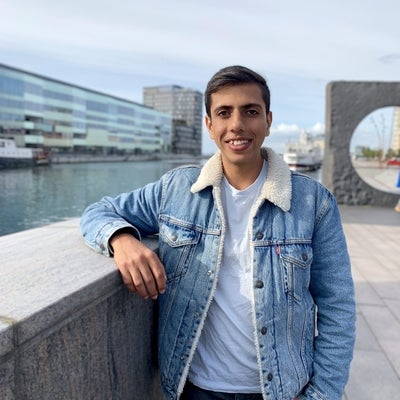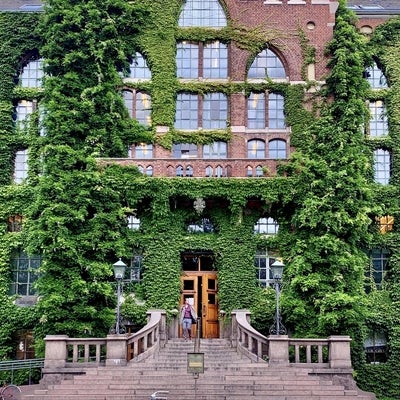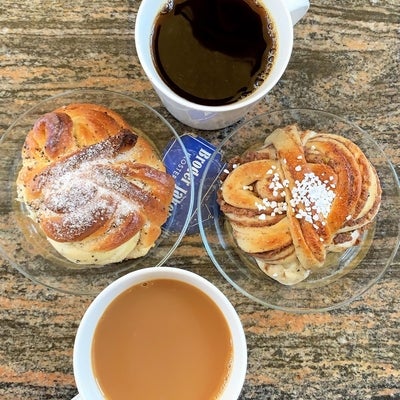Subhan, a Mechatronics Engineering student, spent his 3B term studying at Lund University in Sweden. Here's what he had to say about the experience.
What type of traveller do you think you are?
A sunset chaser! Here are a few favourites:



Why did you choose your host country and institution?
Sweden is known for being modern, progressive, and happy. I wanted to experience studying and living in such a place, especially to learn how the lifestyle is different from North America and South Asia, which are two places I have already lived in before. In addition, Lund University is known for its exceptional student life and a well-established exchange program. Studying there would give me an ideal opportunity to make friends from different parts of Europe, which was a major factor. Most importantly though, being in Sweden would open up many doors for traveling within Europe. I could easily explore the rich culture and history from different parts of Europe, which had been on my bucket list for a while!
What was an average day like in your program?
Our semester was split into two study periods. In the first one, when I had classes every day, my usual day included a two hour lecture in the morning followed by lunch and fika with some Swedish friends, and finally a post-lunch study session to get homework and projects done. In the evening, I usually went swimming and cooked dinner with some exchange friends in my student residence. During orientation, which lasted five weeks, I used to spend most of my evenings with my mentor group either having a study night or going to some social event. During the second study period, I had only two lectures a week, so my regular day usually consisted of me exploring a new city in the morning and spending some evenings catching up on homework/projects.
What was one of your favorite experiences from your time abroad?
It's really difficult to pick a favorite, but one experience that I can never forget is attending a sittning arranged by our orientation leaders. A sittning is a Swedish university tradition which includes a fancy dinner (usually three-course meal) preceded by a set of scavenger hunt style games and followed by a night out at one of the student nations. Sittnings are also centered around a theme and include an entertainment component where the hosts put up several quick musical and drama performances. We had several sittnings throughout orientation, but the most remarkable one had a toga theme, included a surprise pasta fight, and had some amazing performances in Swedish and English!
With that said, an equally favorite part of my exchange was running into the most incredible views, especially in Switzerland, Belgium, and Italy, unexpectedly during my travels. I found the best views in places I wasn't even expecting, and hence some of my favorite travel experiences are from places I hadn't even heard about before going to Europe.
What was it like to live and learn in another language?
Honestly, I wish I could go back only so I could speak and pick up more and more Swedish every day. It was really difficult at the beginning to learn any Swedish at all. Most Swedes know English really well, and the moment they get a hint that you are a foreigner, they would speak English with you by default. So, whenever I tried to use my broken Swedish at cafes and shops, the response I got was in English, which really hindered my learning. However, I had some really helpful friends that used to teach me Swedish on a regular basis, and now I am at a stage where I speak with them regularly over the phone in Swedish!
Overall, it was a really nice experience to learn a new language and live in a place where the default language of conversations was not English. It really helped me appreciate the importance of being able to communicate properly and how difficult it is when you can't fully express yourself.
Were there any challenges? If so, how did you overcome or cope with them?
Thankfully there was not much of a language barrier - every Swede understood me when I spoke English! Although the language barrier did become a big deal during my travels, especially when I had to explain dietary restrictions at a restaurant where no one understood English.
A big challenge was managing time and it posed a bigger problem than I expected. The problem was that I had a full-time course load (as in any other academic semester) with added expectations of traveling and attending social events for exchange students. It was really difficult to balance my travel plans with my course workload. I had to be creative with how I studied and got things done while leaving time out for travel and socializing. Sometimes, I incorporated selfstudy sessions into my travels i.e. go to a different city, explore during the day and catch up on school in the evening. Overall, I think it turned out really well in the end. I got more than enough time to travel and managed to keep up and do well in school.
Did any of your experiences challenge the assumptions you held about your host country or culture?
Not really, most of my experiences only added to my appreciation for Sweden and Swedish culture. Although, it was interesting to learn about the informal Swedish code of conduct during social interactions. In general, Swedes stay a little reserved during interactions with strangers. Everyone would smile at you and say 'hej' when they see you, but no one would ask you how you are doing unless they know you. It is considered weird to ask strangers how they are doing or hold small talk about matters that don't really concern you. I did not really know about that before going, but it was
nice to learn and observe the differences from a North American society.
Has this exchange helped you personally, academically or professionally?
It has helped me a lot in my personal growth. I have met many incredible people from all over the world through my studies and travels. I must appreciate the exposure I have gained to varying points of views, varying cultures, and various ways of living life through my conversations with these people. It's truly helped me be more versatile and open-minded in my thinking. I have learnt to appreciate the similarities and differences across cultures and religions. In addition, it's been interesting to discover what people from different parts of Europe think of Canadians and Pakistanis - definitely helps me be more aware and appreciative of my own culture!
Did your understandings about your own life, or reflections on your experience, change after you came back to Waterloo?
They changed quite a bit. I had a lot of exposure to different points of views, all of which had at least some impact on the way I think. One obvious example is my attitude towards sustainability. In Sweden, I met a lot of people that actively resisted airplane travel, bought second-hand clothes, and ate sustainably sourced food. Spending several months with these people really inspired me to be more cautious of my decisions as well. Sustainability is a much bigger consideration in my decisions now than it was before going to Sweden. This is one of many examples, but in general, the exposure I have gained through exchange has greatly impacted my actions and the decisions I make every day.
If you could do it all over again, what would you do differently?
I would start planning out travels even before going. Travel planning takes a lot of time and it's quite difficult to do while trying to balance studies, social life and trying to save time for the actual travel itself. I would also look up specific experiences that are the specialties of different places in Europe (i.e. paragliding in Interlaken) beforehand. Most of my travels were sightseeing, which was great, but it would be even better to incorporate more unique activities!
I would also start learning a bit of Swedish before going. Some things were difficult at the beginning, especially grocery shopping. Everything was labeled in Swedish and all the ingredients were also listed in only Swedish, it was a painful process of running the entire ingredients list through Google Translate before buying any processed food.
Do you have any advice for Waterloo students thinking of studying abroad?
First of all, don't shy away from it. I understand that there are many uncertainties involved with living in a totally new place and trying to figure your way around new people and new environments, however the experience is absolutely worth it. You may not realize it now, but even just trying a different education system and living in a new environment for a few months really helps you grow and improve your thinking overall. If you're into travel, exchange is a once in a lifetime experience where you have so many opportunities to experience different places with the locals
and pick up on new cultures and languages.
Is there anything else that you would like to share?
One thing I saw a lot in Sweden was that many exchange students were hesitant to even start learning Swedish because four months was not enough to learn the language and hence, it seemed useless. I really discourage that thinking. I have experience picking up significant Swedish without even taking a full course in it. I think four months is more than enough to learn the basics, which will stick with you as long as you make an effort! Also, the process of learning the language of your host country and being able to understand what everyone is saying is really satisfying!











